Heralded as ‘the first of its kind’, a new inclusive and accessible playground – which opens today in Barnet, North London – is setting the standard for inclusivity across the UK by enabling people of all ages and abilities to play together.
- New inclusive playground in north London exceeds UK accessibility standards
- Co-designed with disabled residents, parents, carers and accessibility experts, the playground shows what’s possible when inclusivity is put at the heart of public space design
- Local duo behind fundraising efforts motivated by personal experience
- Stats show almost half of parents with disabled children struggle with playground accessibility
- Shadow Minister for Disabilities, Vicky Foxcroft, hails playground as “milestone in the journey of inclusive play”
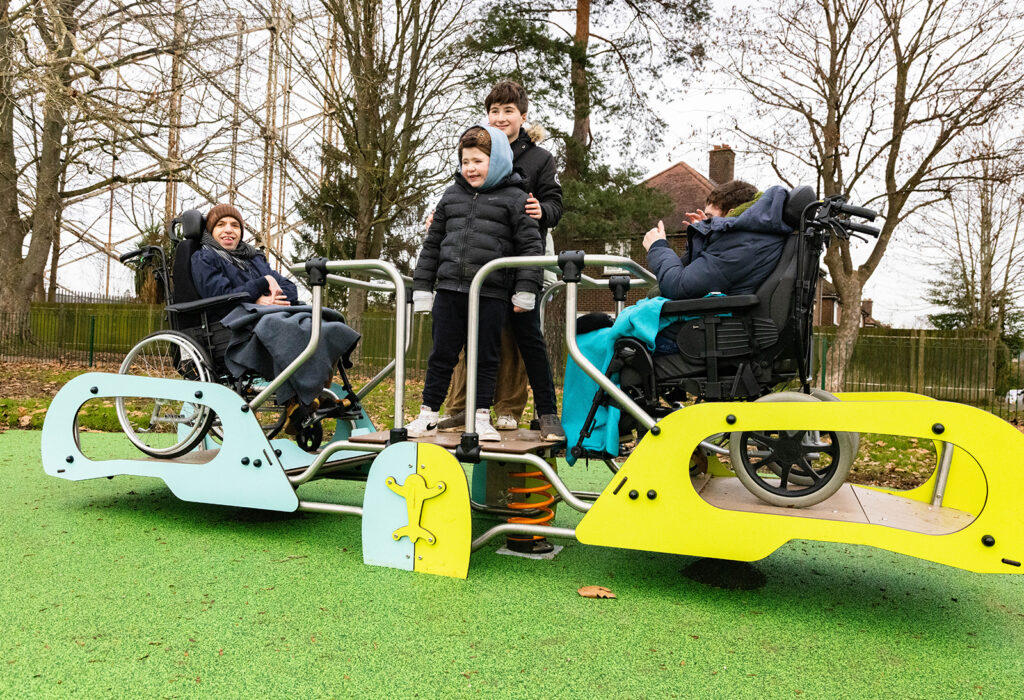
There are one million disabled children in the UK. But research from Scope has shown that half (49%) of parents with disabled children say there are accessibility issues at their local playground, and more than one in ten families living with disability (13%) were unable to enjoy the playground because their children were not able to play together.
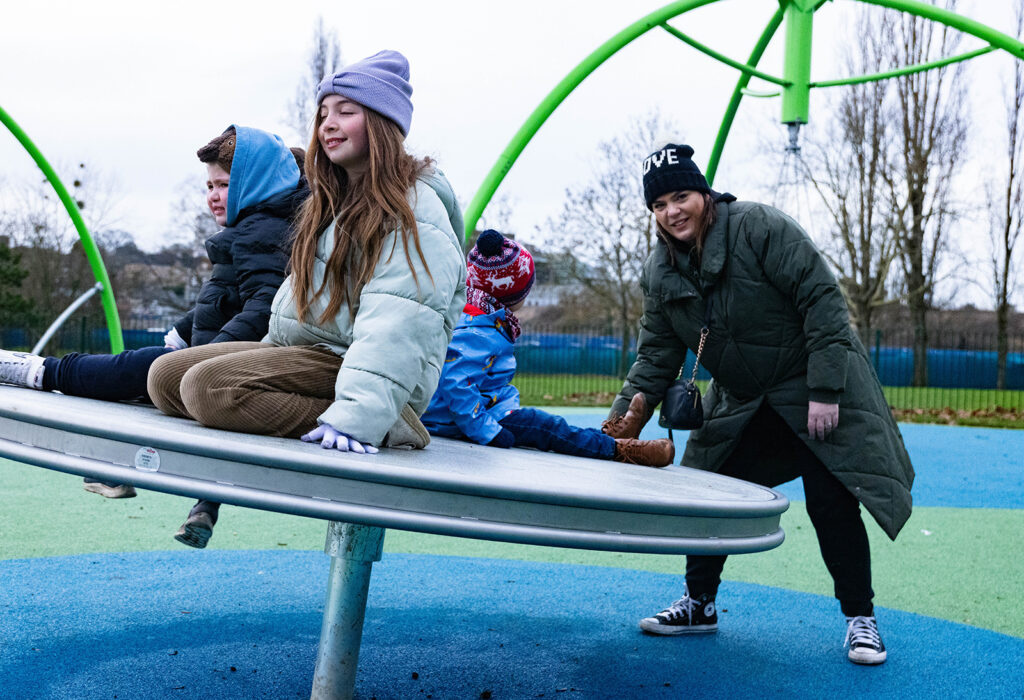
The Fair Play playground in Barnet directly addresses the challenges faced by the disability community and empowers disabled and non-disabled people of all ages to play together without exclusion or bias. Local residents with disabilities, parents, carers and accessibility experts have been involved in shaping the project from the outset, putting the disability community at the heart of its design.
Fair Play, a pioneering initiative that advocates for inclusive spaces, worked with manufacturer Kompan to include accessible equipment which spins, rocks, and swings, along with sensory panels for touch, movement and sound – all selected with the disability community in mind.
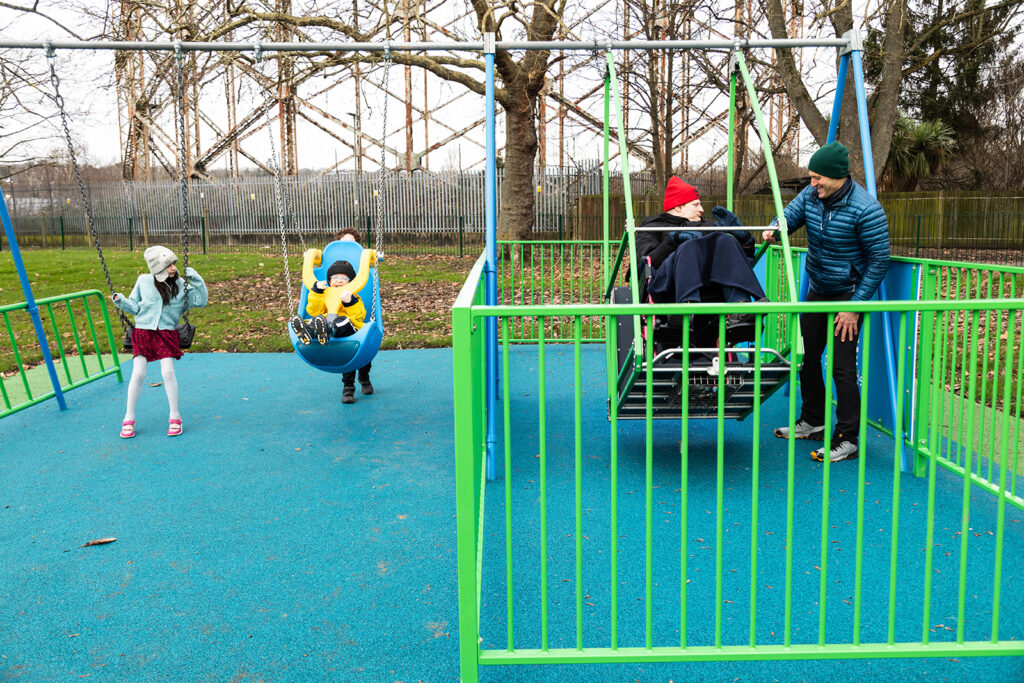
Solid safety surfacing across the whole play area ensures it is wheelchair accessible, and the picnic area allows wheelchair users and non-wheelchair users to sit together. There are also communication boards for non-verbal people to use, along with a textured path surface to support visually impaired users to navigate and only one entrance and exit to ensure users won’t leave without their carer’s knowledge.
This flagship initiative is the first of its kind, but it should not be the last. Fair Play has created a new standard for inclusivity and is calling for local councils to replicate the model and transform the future of play.
The founders of Fair Play, Deborah Gundle and Nathalie Esfandi, with the assistance of Angela Harding OBE, rose to the challenge to bring their vision of a truly inclusive playground to life. The pair raised funds independently and mobilised various partners including Barnet Council, Scope, PiPA Play, and Kompan to construct the playground and lay the groundwork for the future of play.
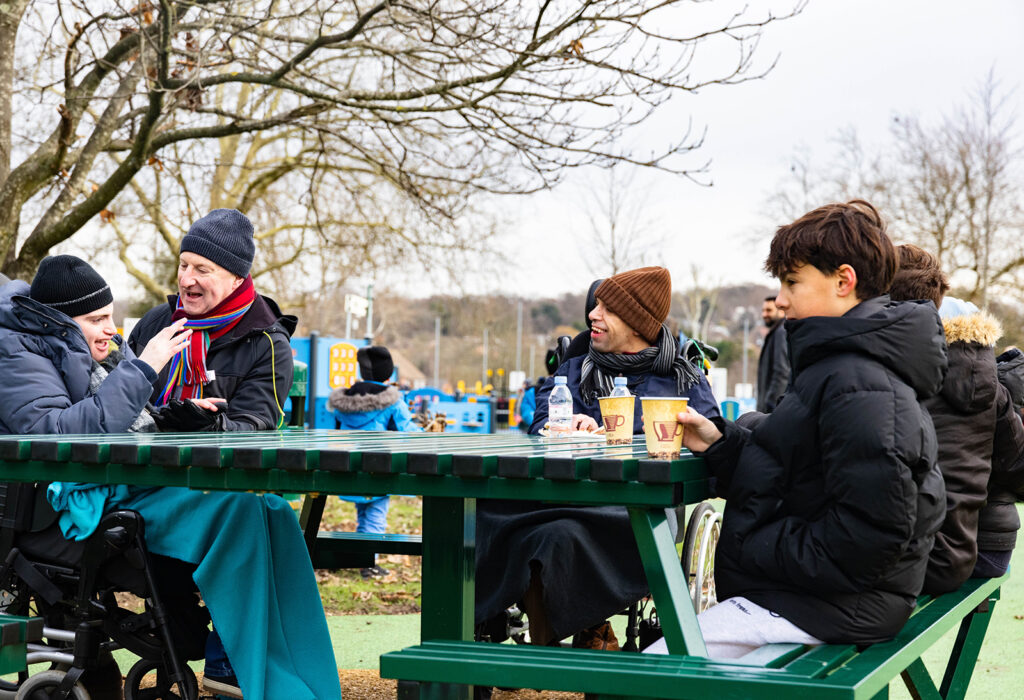
Deborah, a social entrepreneur and learning disabilities activist, wanted to create a playground that would remove the current barriers of having fun, social inclusion and fitness accessibility. Having a son with a disability, she knows first-hand how vital promoting inclusivity is.
Deborah Gundle, co-founder of Fair Play, said: “As a mother with a disabled son, I know how difficult it is for families like ours to be able to play together. A lot of hard work has gone into this project, and seeing the equipment being used by disabled and non-disabled children side-by-side is incredibly rewarding. I’d love for every playground to allow people of all ages and abilities to play in this way and we hope Fair Play will act as the blueprint for new playgrounds up and down the country.
“Inclusive play will reduce stigma through positive experiences in a society where social integration and physical fitness are important to all of us.”
As a mother of three, Nathalie has always valued the importance of play for physical, social, cognitive and emotional development, and believes playgrounds are a space where there should be no exclusion.
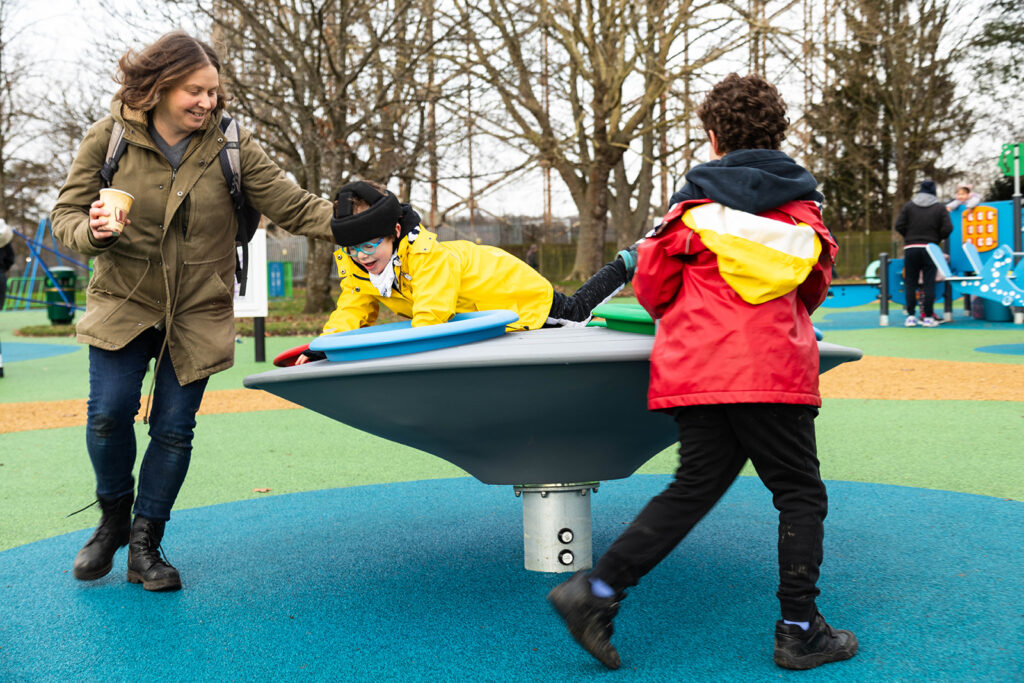
Nathalie Esfandi, co-founder of Fair Play, said: “Playgrounds should be wholly accessible and inclusive, allowing those with learning and physical disabilities to play alongside their siblings and friends. Local governments across the country should take note of this, providing community spaces that serve all ages and abilities.”
Vicky Foxcroft, the Shadow Minister for Disabilities, said: “The opening of the Fair Play playground is a milestone in the journey of inclusive play – breaking down barriers by creating a play space that is accessible and open to all. Forming relationships and having the freedom to play with your peers is an essential part of early cognitive development, no matter what your ability, so it’s important that we get behind the creation of inclusive spaces like this to promote wellbeing for future generations.
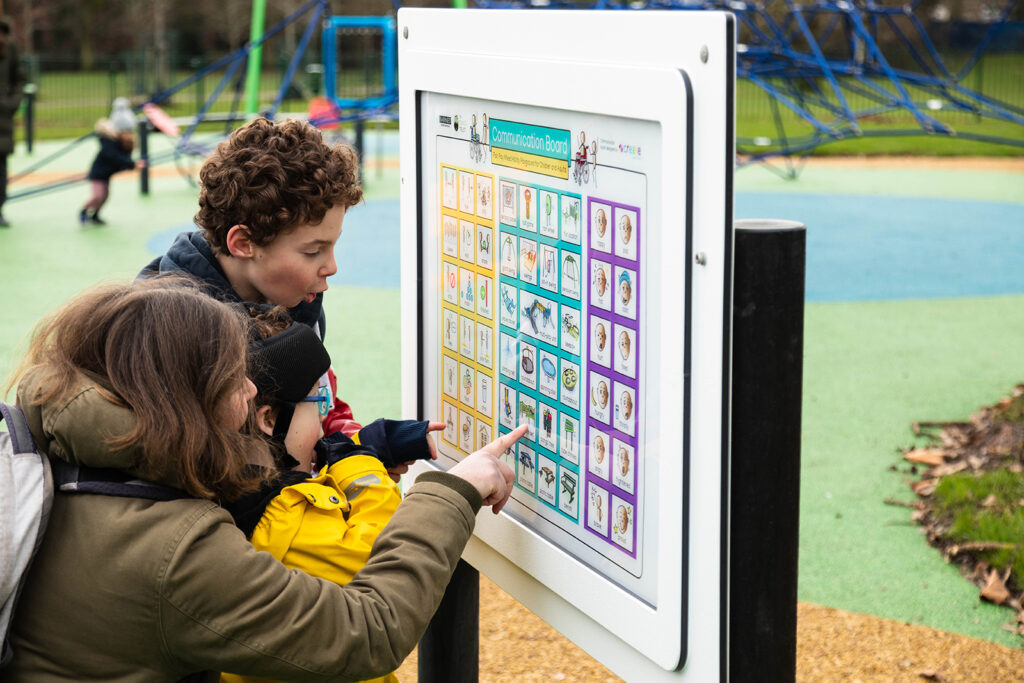
“It’s great to see a Labour council supporting this incredible project.”
The half a million pound playground has been paid for through independent funding and donations, including £100,000 coming from Barnet Council. In addition, the Council launched a public consultation to ensure it meets the needs of local residents.
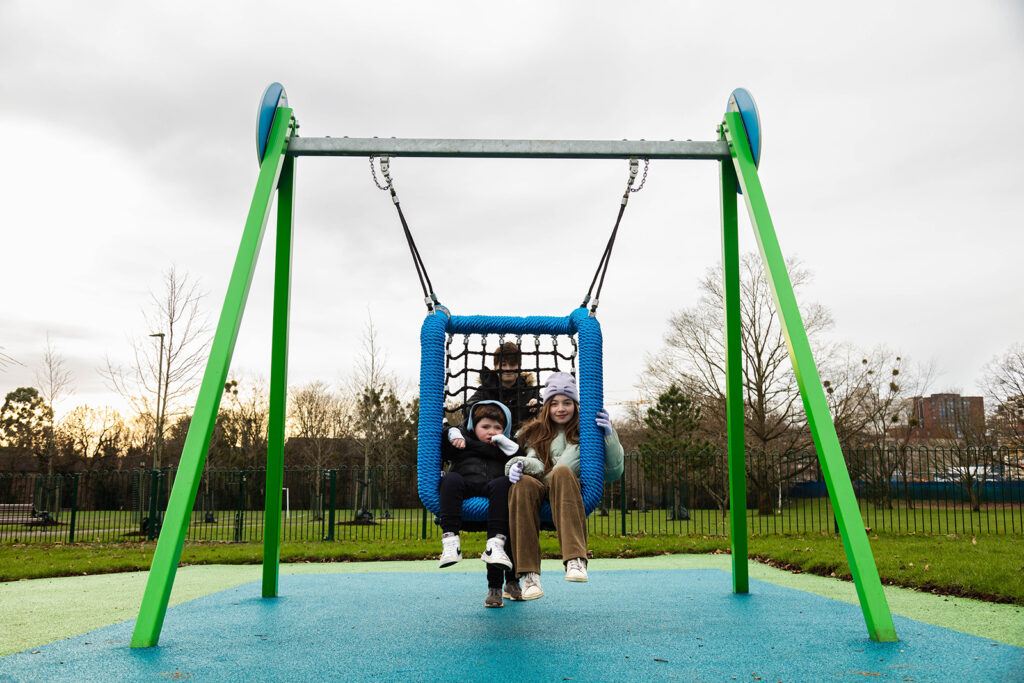
Cllr Nagus Narenthira, the Worshipful Mayor of Barnet, said: “I am honoured to be able to open the Fair Play inclusive playground today. It’s wonderful to see so many people of all ages and abilities being able to play together. We are fortunate in Barnet to have had such a wonderful team of fundraisers to help achieve this and I hope this is a model that we can see more of in future.”



